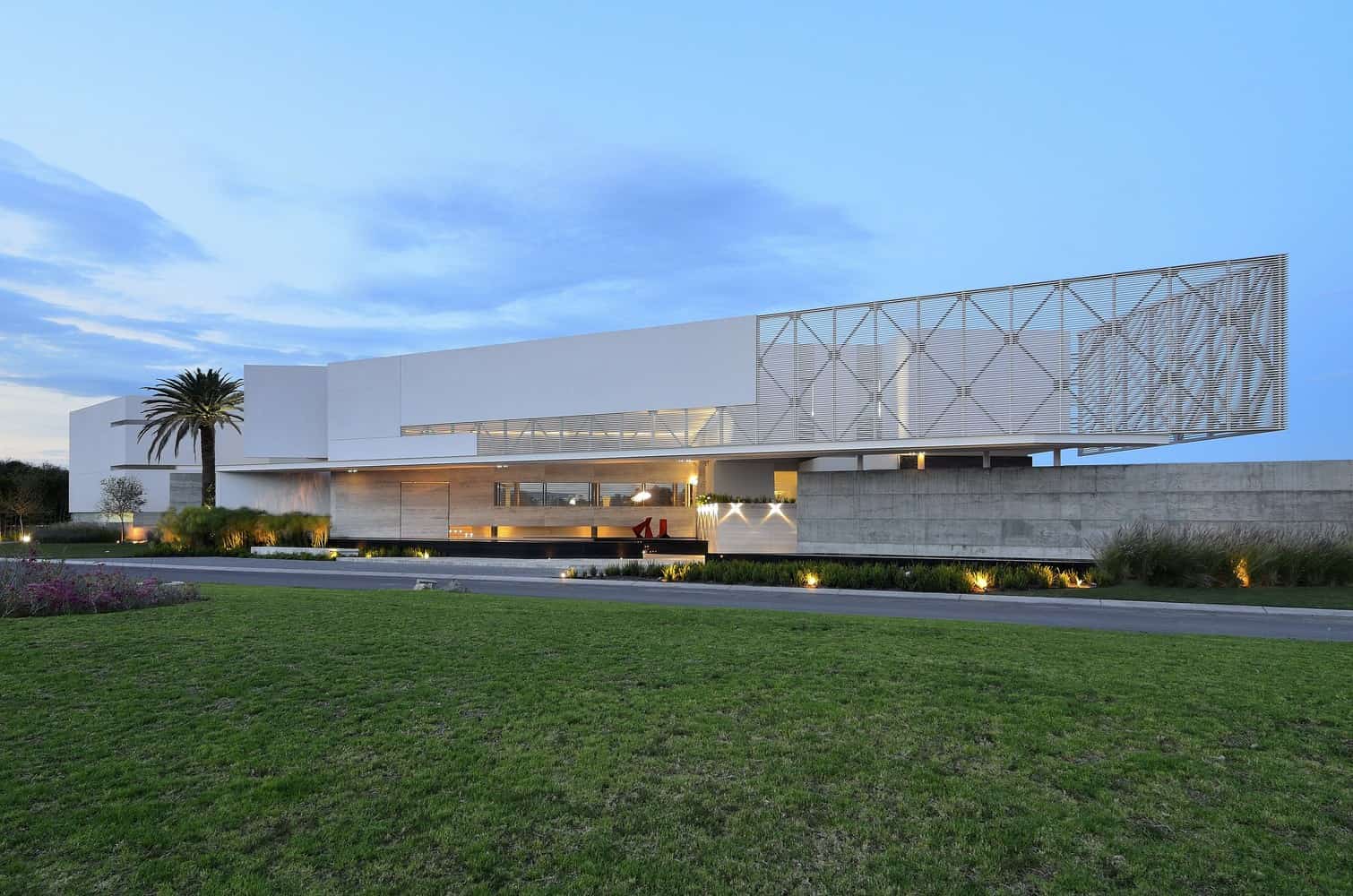Project: JRB House
Architects: Reims Architecture
Location: El Campanario, Santiago de Querétaro, Querétaro, México
Area: 34,444 sq ft
Photographs by: Ricardo Janet


Located in Santiago de Queretaro, Mexico – the JRB House represents an ambitious project designed by Reims Architecture. It includes a lot of sustainable features implemented in the contemporary look which is crafted with handmade traditional techniques.
The shapes evoke the modern Mexican architecture with their massive volumes and protruding sections to give a sense of lightness for contrast. Outside, the areas have exposed concrete on the ground acting as the foundation for the architecture, continuing with steel structure made with light panels or covered in red brick with mortar coating.
From the architects: “Besides improving the quality of life of those who inhabit it, the project’s main goal is to satisfy the clients’ needs and materialize their ideals. This great house works toward the conservation and preservation of the environment via the implementation of electric energy generation and preservation systems, solar warming, and reuse of residual water. Furthermore, it is as an architectural expression of our time achieved by the implementation of constructive technology in steel structures and prefabricated panels fused to the traditional systems of handmade construction using local workforce, bricks, reinforced concrete, and exposed concrete. These elements are paired alongside the intention of achieving a great architectural body rich in form and content reflecting the roots of modern Mexican architecture. Its great and massive volumes, together with the implementation of new building technologies and visions of our time, are represented by these great protruding sections and clearings, openings, frames, and a sense of “lightness” accomplished by these great masses when they separate from themselves and, in some cases, even from the terrain itself.”


“The exterior spatial design is defined by straight, diagonal, and curved elements made of exposed concrete planted on the ground, which work as a foundation for the architectural composition. On top of these, by means of visible or concealed steel structures, bodies are made up of light panels covered by coatings or red brick walls coated with mortar and painted in very pale gray, of which the space is delimited by large tempered-glass windows. In some cases, several exterior walls are covered in cutup basaltic granite with the intention of providing the composition with more texture, contrast, and warmth. Inside is a diversity of finishes and coatings both local and imported that would be difficult to use due to a vast architectural program.
It is important, however, to point out the main elements of the composition: the gray marble (Silk Georgette) in the ground floor’s floors and walls, warm gray-colored staves in all the floors and in some of the upper level’s walls, and the exposed concrete as major characteristics in the spaces located in the basement, where the garage is delineated. The great contribution in the interior design, furniture selection, and lighting carried out by Axel Duhart is also worth mentioning.”
“The orientation takes advantage of the view to the deep side of the golf course. The house is developed in three levels with a sole truncated axis of circulation, which is the origin of this project. In the center of the house, the public area and the main hall are found, which serve as a nucleus and distributor from where the adjacent spaces are developed in two ways. They acquire their privacy in a gradient manner as they move away from the nucleus, the upper level’s extremes as the space designated for the bedrooms. The architectural program is defined by three levels starting from the basement, containing a great exhibition garage for 12 cars, service areas, machine rooms, an office, and a wine cellar. At the entrance level, the nucleus conforms to the main hall and living and dining rooms, followed at one end by the kitchen, breakfast area, and family living room. At the other end of the nucleus, you may find the recreation areas designated as a movie theater room, playroom, gym, terrace, swimming pool, and loft. The master bedroom is found at the upper level with all its services as well as three other bedrooms with dressing rooms and bathrooms, apart from a study and family room.
This project was planned and built thanks to the vision and tireless work of a team of young Mexican architects led by Eduardo and Jorge Reims.”
This website uses cookies.